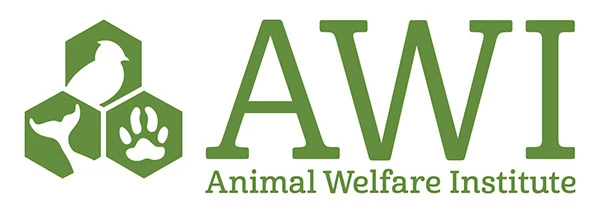
Real Estate Investment Strategies for Beginners in Illinois
Introduction
Real estate investment in Illinois offers a landscape rich with opportunities, yet it can be daunting for beginners. This guide aims to demystify the process and provide you with the foundational knowledge needed to start your investment journey. Whether you're looking to build long-term wealth, generate passive income, or embark on a new career path, understanding the basics of real estate investment is crucial.
Real Estate Investment in Illinois:
The Illinois real estate market presents a unique set of opportunities and challenges for new investors. From the bustling cityscapes of Chicago to the quieter suburban and rural areas, the diversity in property types and market dynamics offers a range of investment possibilities. The state's economy, demographic trends, and employment landscape play significant roles in shaping the real estate market, making it essential for beginners to have a well-rounded understanding of these factors.
Target Audience:
This guide is tailored specifically for novices in the real estate investment world. If you're starting with little to no experience in real estate, this guide will walk you through the critical steps and considerations, helping you make informed decisions and set a strong foundation for your investment portfolio.
Key Factors to Consider in Real Estate Investment in Illinois
1. Understanding the Illinois Real Estate Market:
Prime Location: Illinois, particularly Chicago, is strategically located within the heart of the United States. This prime location, coupled with access to major transportation hubs, makes it an attractive destination for real estate investment. Chicago's diverse neighborhoods, like Lincoln Park, Lakeview, and the West Loop, offer various lifestyles and amenities, driving demand for housing.
Chicago's skyline, showcasing urban real estate opportunities in Illinois.
2. Economic Stability and Job Growth:
Diverse Economy: Illinois boasts a diverse economy encompassing finance, manufacturing, technology, and agriculture. The presence of major corporations and the Chicago Stock Exchange contributes to the state's economic strength. However, investors should be mindful of Illinois’ fiscal policies and budget issues, as they can significantly influence the market.
3. Demographic Trends:
Urbanization and Millennial Influence: There is a noticeable trend of urbanization in Illinois, with people moving to metropolitan areas like Chicago. The influx of millennials into the housing market, who often seek affordable, urban housing close to amenities, is reshaping the real estate landscape. Investors should consider these demographic shifts when planning their investment strategies.
4. Education and Quality of Life:
Educational Institutions and Lifestyle: Prestigious universities in Illinois create housing demand from students, faculty, and staff. Additionally, the quality of life, including parks, cultural attractions, and recreational opportunities, significantly impacts real estate demand. These factors make Illinois an attractive state for a variety of lifestyle preferences.
5. Housing Market Trends:
Cyclical Fluctuations and COVID-19 Impact: The Illinois real estate market is subject to cyclical fluctuations. The pandemic brought shifts in housing preferences towards more space and remote work, increasing demand for suburban and rural properties. Understanding the supply and demand dynamics in specific neighborhoods is crucial for making informed investment decisions.
6. Navigating Regulations:
Regulatory Environment: The real estate market in Illinois is shaped by a complex regulatory environment, including zoning laws, property taxes, and rent control policies. Recent changes in property taxes in Chicago, for example, have caused concerns among property owners. Staying informed about these regulations is vital for investors to adapt their strategies and provide accurate advice to clients.
Investment Strategies for Beginners in Illinois Real Estate
1. Wholesaling:
Strategy Overview: Wholesaling involves identifying properties that are appealing to investors and signing a purchase agreement, which is then sold to an investor who completes the acquisition. This strategy doesn’t require the wholesaler to own the property but rather the contract itself.
Market Analysis: Key indicators like median home prices and population growth are crucial for identifying potential wholesaling opportunities. A city with declining property values may present opportunities for wholesaling, especially in short sales.
2. Key Metrics for Investment:
Median Age and Income Rates: The median age of a region’s population should align with the workforce age, indicating a steady housing market with a pool of renters and potential buyers. Additionally, consistent improvement in median household and per capita income is essential for ensuring the scalability of investments.
Job Creation and Unemployment: The number of new jobs created in a community is a vital indicator of its potential for long-term investment. Areas with consistent job creation attract both long-term and short-term investors.
Renovation Costs: For short-term investments like fix-and-flips, keeping renovation costs lower than the after-repair value is critical for profitability. Prioritize locations with lower average renovation costs to maximize returns.
3. Passive Investment Options:
Real Estate Syndications: This involves a group of investors pooling their resources to purchase properties. The syndicator manages the investment, while partners contribute capital and receive a share of the income. This is a passive investment strategy where investors don’t manage the property.
Real Estate Investment Trusts (REITs): REITs allow average investors to invest in a diversified portfolio of real estate assets. Shareholders in REITs are passive investors, with their investment spread across various properties owned by the trust.
Conclusion
Encouraging Final Thoughts:
As you embark on your real estate investment journey in Illinois, remember that every successful investor started as a beginner. The Illinois real estate market, with its diverse opportunities and dynamic nature, offers a fertile ground for learning and growth. Whether you choose active strategies like wholesaling or prefer the more passive approach of REITs and syndications, the key is to start with a solid understanding of the market and grow from there.
Advice for Beginners:
Invest with caution and knowledge. Take the time to research, understand the market trends, and align your investment strategies with your financial goals. Join real estate investment groups and seminars to network and learn from experienced investors. With patience and perseverance, you can navigate the Illinois real estate market successfully and build a strong, profitable investment portfolio.
WE OFFER OVER
25+
PROGRAMS
WE HAVE SERVED
12000+
STUDENTS
VETERAN STAFF
40+ Years
INDUSTRY EXPERIENCE
PROUDLY PROVIDING
23+ Years
OF EDUCATION
INLAND REAL ESTATE SCHOOL, INC. SUPPORTS

Campus Visiting Hours by appointment only:
1st-18th each month AM times, M-F
19th-end of the month PM times, M-F
Visiting hours need to be scheduled in advance
Not affiliated with The Inland Real Estate Group of Companies, Inc. and “The “Inland” name is a registered trademark being used under license”
OAK BROOK, ILLINOIS 60523. © INLAND REAL ESTATE SCHOOL, INC. A PROFESSIONAL LEARNING INSTITUTE, INC. COMPANY, 2010. ALL RIGHTS RESERVED.
NOT AFFILIATED WITH THE INLAND REAL ESTATE GROUP OF COMPANIES, INC. THE INLAND NAME IS USED UNDER LICENSE. Privacy Policy







